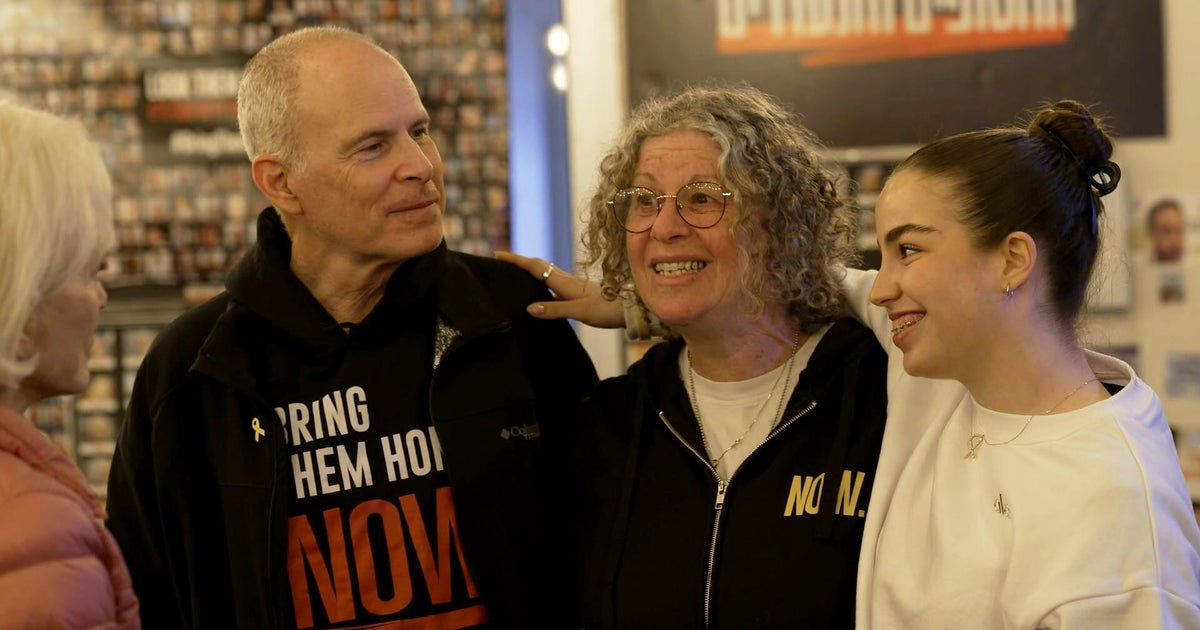As Hamas stormed their kibbutz on Oct. 7, 2023, Keith and Aviva Siegel were locked in their safe room, listening to the sound of rockets and sirens outside.
Soon, the terror arrived at their doorstep.
The militants violently assaulted the grandparents, both in their 60s.
They shoved Aviva out of a window, tearing her meniscus. As the militants forced them into their own car at gunpoint, the assailants broke Keith’s ribs and shot him in the hand.
The injured and terrified couple were driven into Gaza and brought into a tunnel.
“We [were] put into this very small…cramped niche,” Keith told 60 Minutes correspondent Lesley Stahl. “You couldn’t stand up… No room to walk around. Only if we needed to use the toilet, we were allowed to get out.”
After the first day, the guards left them alone, in pain from injuries and sickness.
“We screamed… ‘We need help. Please, come’… no response. No reply. [We] gave up,” Keith told Stahl.
The Siegels would go on to spend 51 days in Hamas captivity together, moving from location to location.
They were held with other hostages throughout that time, but they found strength and friendship in the company of two captive Israeli soldiers, Agam Berger and Liri Albag.
Stahl asked Keith Siegel what the bond is like between hostages who survive the same horrifying experience together.
“A very strong bond. Being able to look after each other… physically or mentally, emotionally, psychologically, [and] being supportive.”
Last week, Aviva and Keith had a joyful reunion with Berger and a video chat with Albag, and Stahl heard more about how they supported one another.
“This beautiful, gorgeous girl came, and she didn’t stop smiling even though they were just so mean to us all the time,” Aviva said, smiling to herself.
“We used to just hold our hands [together]… and look at each other in so much fear. But we were together.”
They would whisper to one another, so as not to alert the guard, and tell each other stories. Keith told jokes.
“Most of the time, Keith cheered us up,” Berger told Stahl.
But later, Keith fell into a state of depression, becoming quiet and distant from the group for three days straight. The young soldiers pulled him out from his gloomy state.
“And they got Keith out of the depression,” Aviva said.
“They just said that they worried about him and that he must come back to himself, because he used to make them laugh.”
During a period of intense bombing, Keith offered support to Berger. “I asked how I could help calm her down… I held her hand. And I helped her.”
“I never cried like that when we were together until that day,” Berger told Stahl in Hebrew.
“I put my head on him, and I just cried. He was comforting me.”
During the interview, Berger spoke in Hebrew to Aviva and Keith. Aviva translated.
“She said that we’re never gonna separate. [That] Keith and I, we’re like parents to her. And we just love her so much.”
After Aviva was released during a brief ceasefire in November 2023, Keith remained in Hamas captivity for over a year more.
He told 60 Minutes he witnessed the sexual assault of hostages by Hamas militants. He said he was beaten, psychologically tortured, and humiliated by his captors.
He also told Stahl that he is “still there,” in Gaza with the remaining hostages, and thinks about them almost every minute of the day.
A majority of Israelis support a ceasefire agreement with Hamas, but the Israeli government broke the previous fighting pause over a week ago.
As of this weekend, reports indicate that a potential renewed ceasefire between Israel and Hamas is being discussed.
Keith told 60 Minutes that negotiations for the release of the remaining hostages should be a top priority for the Israeli government.
“I urge President Trump, I urge the administration, I urge the Israeli government, and I urge the mediating countries… to get back to negotiations and to get the hostages back,” he said standing outside of a destroyed home in Kfar Aza.
“Every day that this goes on is just more and more suffering… it needs to be done now.”
The video above was produced by Will Croxton. It was edited by Patrick Lee.



